Cost of living: 'You get less and less for your money'
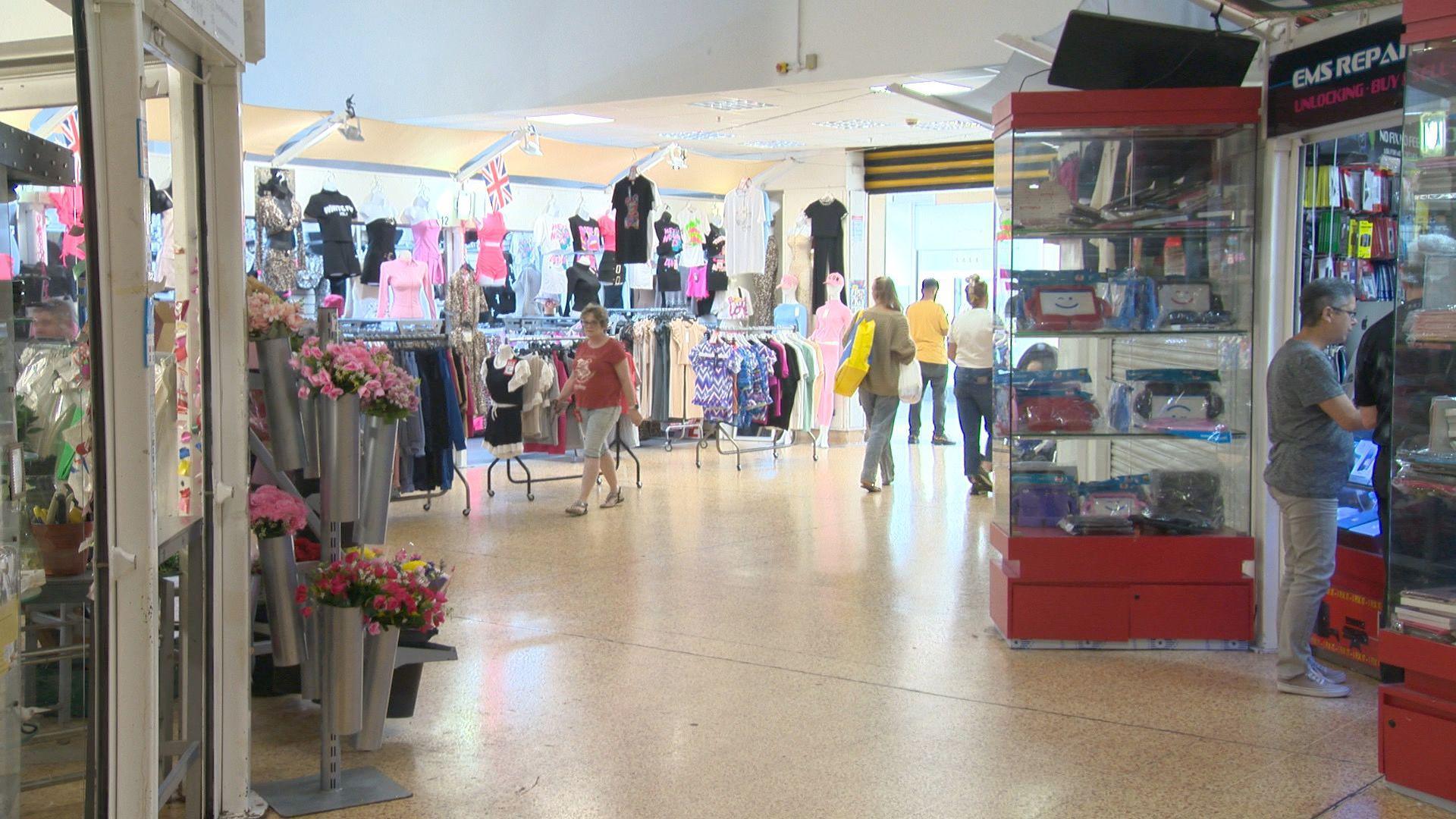
Customers and traders at Ellesmere Port's market tell the BBC about their experiences with the rising cost of living
- Published
It's mid-morning and business is brisk at the butchers in Ellesmere Port's central market.
N&N Meats is run by husband and wife Bill and Nikki Ferguson who've been in the trade for more than 30 years.
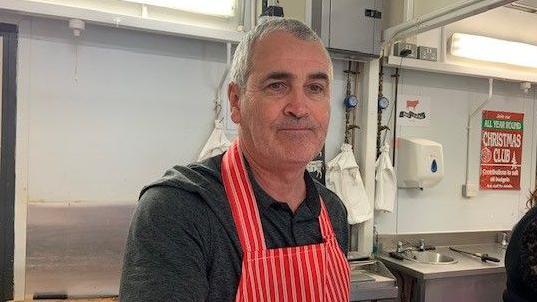
Bill Ferguson runs N&N Meats in Ellesmere Port's central market
Bill says, while trade's remained steady, the last couple of years have seen people change their orders.
"They're buying cheaper cuts. They're not buying sirloin steaks and fillet steaks... they're buying more economically."
Bill says he's had to think creatively – particularly when it comes to passing on the rising costs his own business faces.
"It's a bit of a balancing act – trying to put it up a bit so you're not losing money but you've got to absorb some of the cost, otherwise you're losing customers."
Bill's still busy – people always need food - but some other businesses are struggling.
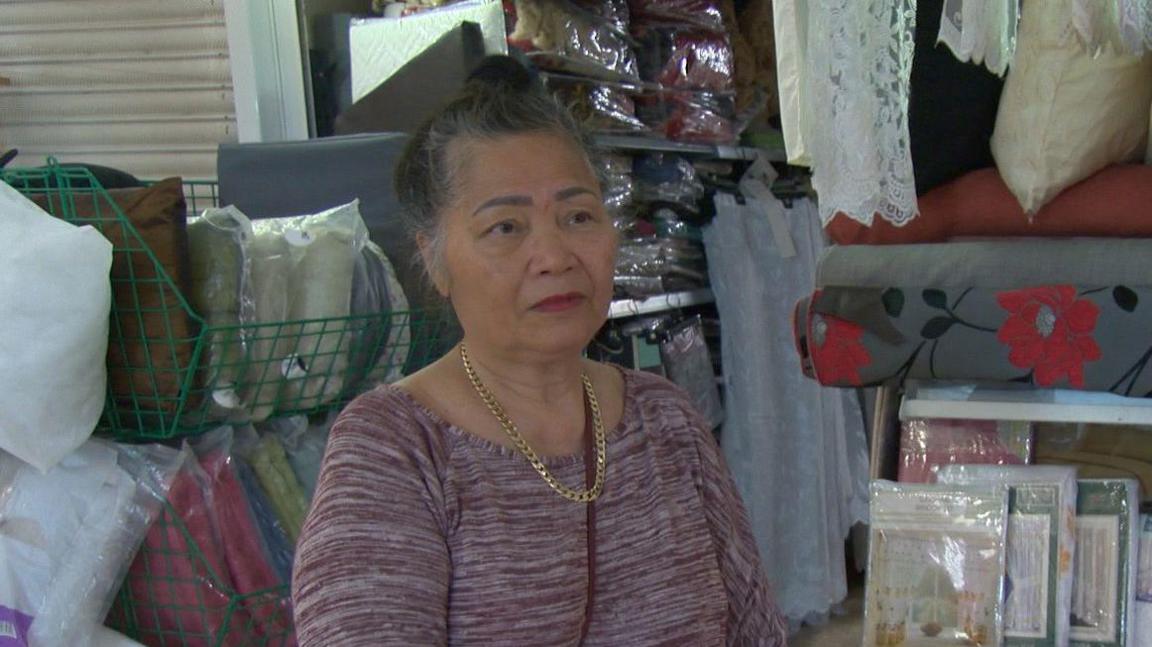
Jo Hopewell says her overheads are getting more and more expensive
Jo Hopewell's been running Jo's Soft Furnishings for 30 years. We're the only people at her stall.
"My business is getting worse and worse," she says.
"The rent is too high, electric is too high, and a lot of people can't afford to buy. We're trying to survive."
'Cut back on luxuries'
Last year average UK earnings went up by 6% - three times higher than the rise in inflation, the Consumer Price Index, which is currently 2%.
But those figures don't reflect the reality for many.
According to the Office for National Statistics (ONS) a quarter of people in the north west of England have an income under 60% of the national average.
A far higher proportion of their money is spent on the basics - and those basics have shot up.
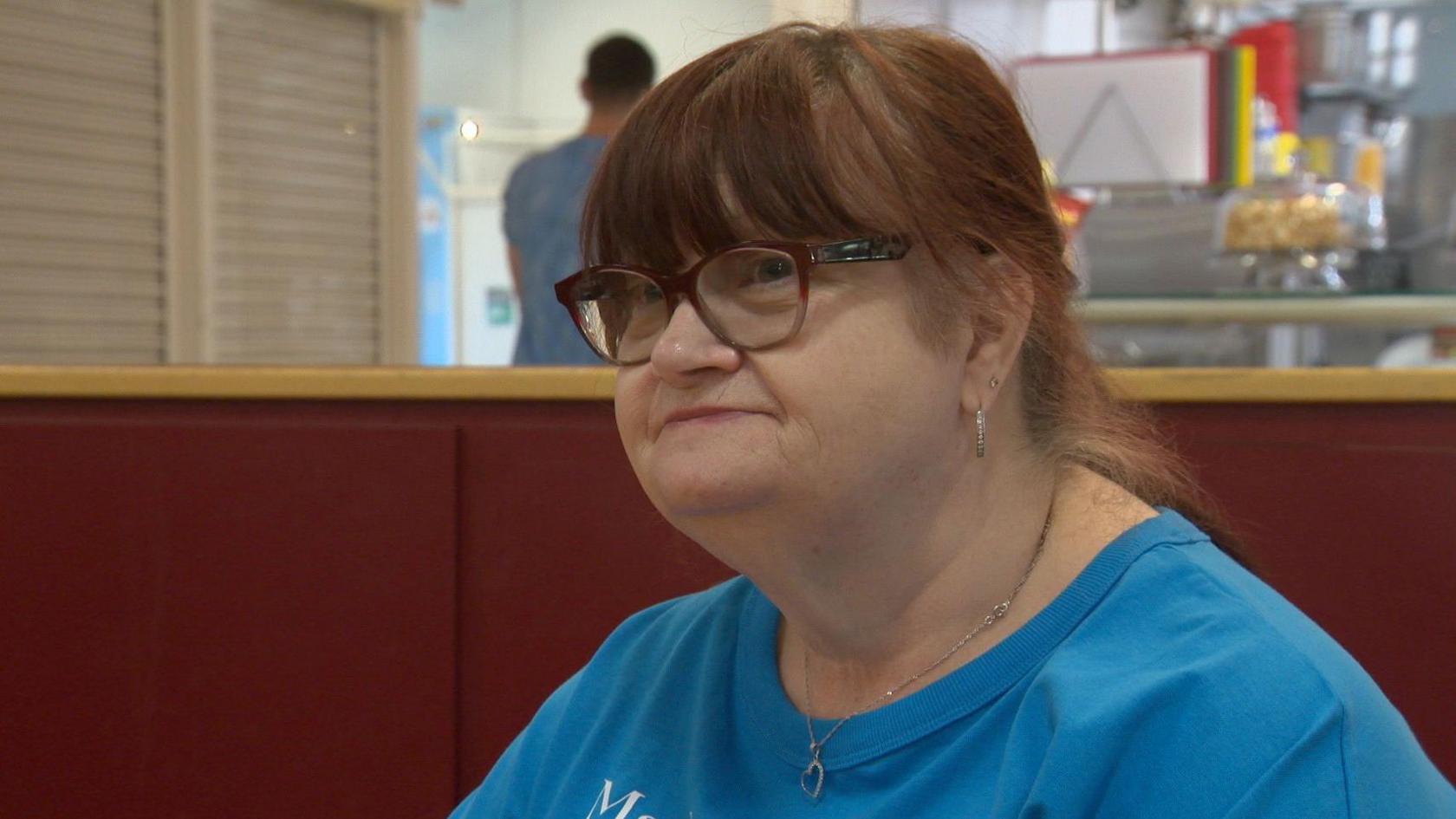
Denise Hadley says the cost of food is "outrageous"
Denise Hadley and her husband Colin are enjoying a coffee in the market's food court. She works at an after-school club on minimum wage. Colin had a stroke a few years ago and can't work.
"In the past few years it's been tougher to get your bills paid, and food is outrageous.
"You're getting less and less for your money every time you go shopping," she says.
According to the ONS the past two years has seen the price of food rise by 25%, nearly three times as much as the entire decade before (9%).
Denise says she's had to cut back on luxuries. For some the word luxuries conjures up the idea of foreign holidays, but for Denise, it means fruit.
"It's more expensive. We just need to concentrate on the basics."
Denise says it's years since they had a holiday: "We don't go abroad at all."
'Uphill battle'
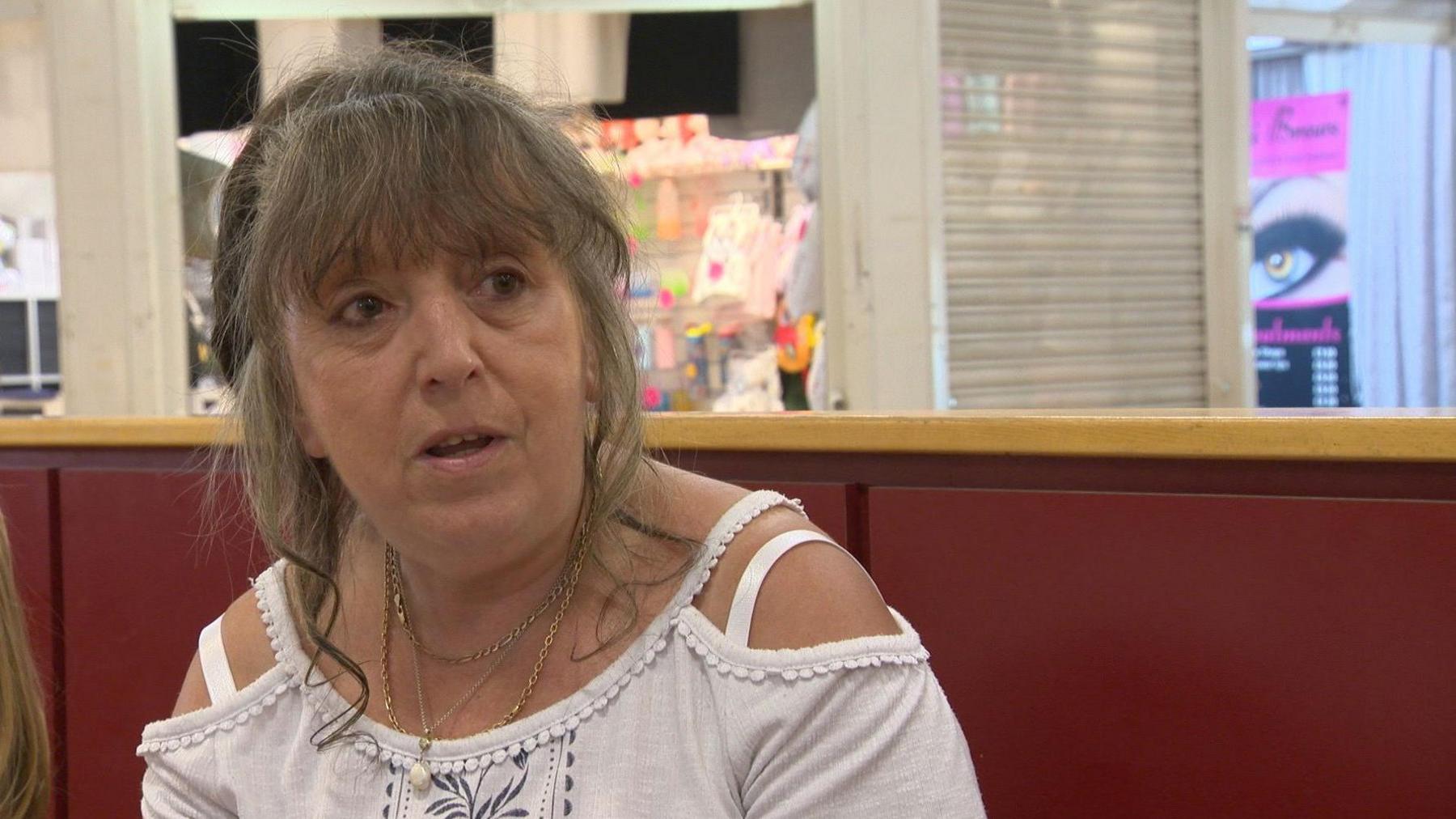
Pauline Woolham says she worries about the younger generation and getting on to the property ladder
A few tables along Pauline Woolham is enjoying cheese on toast while her son and granddaughter demolish plates of chips.
Pauline says she and her husband are currently financially secure, but she's worried about the younger generation. "It's just an uphill battle. They're getting nowhere fast."
Pauline's particularly concerned about the lack of affordable homes, she said: "Our youngest son – it's taken the two of them to get as high as they can before they can buy their own house.
"You need at least £30,000 deposit now for most places."
But saving for a house is difficult when rents are rising.
In the last year alone they have gone up by an average 9% in the north west region. Again, this impacts disproportionately on those with a lower income who can't afford to buy.
'I'm Miss Cromer - but I can't afford to live here'
- Published19 June 2024
A cost of living lesson at the 99p breakfast café
- Published1 July 2024
Charity donation storeroom 'empty for first time'
- Published29 June 2024
A five minute walk from the market, charity volunteers are packing shopping bags full of the kind of healthy food many can no longer afford – fruit, vegetables and fresh milk.
Twenty-three-year-old Tyra Goodwin started Thrive to Survive with her mum and friend after her own family's experience of living in temporary accommodation.
The charity helps families in crisis and the numbers are rising.
Tyra says they've particularly noticed the rise in working people using the service, along with the elderly: "We never used to have older people come and access this and now we're getting a lot more."
Unlike wages, many benefits are linked to average inflation but Tyra points out that most of that money will go on food and rent, which have gone up far more sharply.
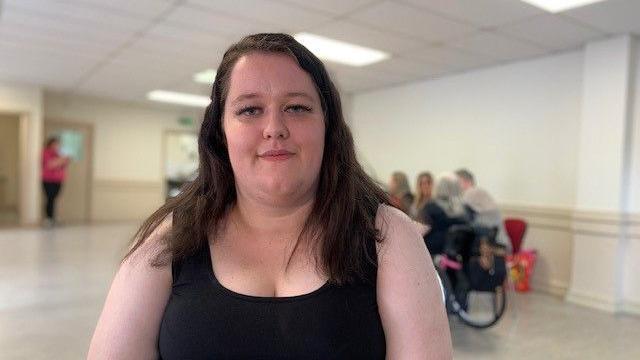
Tyra's charity helps families in crisis and says the numbers are rising
Rachel Williams volunteers with the charity but like many, has also used its services in the past.
Rachel uses a wheelchair and often has bouts of illness. She also needs frequent hospital appointments. She says the combination of demands make it difficult to keep a job and so she is largely dependent on benefits.
Rachel says she too has cut back on healthy foods to make ends meet. Her disability means she's reliant on her car, but she no longer uses it as often as she did.
"Previously if there was a birthday or something like that I could do that (buy a present). If the washing machine broke I could get it fixed, but now I'm struggling to even cover the basics," she says.
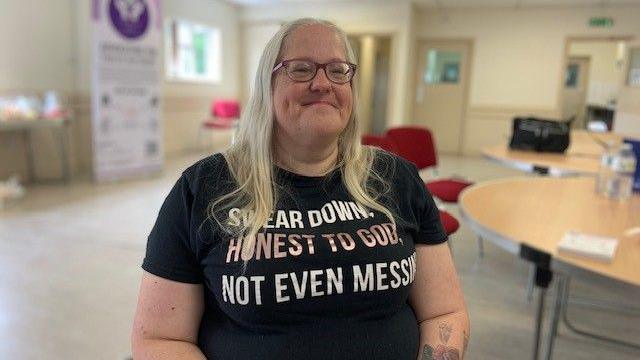
Rachel Williams volunteers at Thrive to Survive
Nationally the economy appears to be heading back up but it doesn't feel like it here.
For the people I've spoken to in Ellesmere Port, life still feels tough and the future uncertain.
The question is what the next government can do to change that feeling.
A full list of candidates for the Ellesmere Port and Bromborough constituency can be found here
Watch BBC North West Tonight on BBC One and on BBC iPlayer. Listen to the best of BBC Radio Merseyside on Sounds and follow BBC Merseyside on Facebook, external, X, external, and Instagram, external. You can also send story ideas to northwest.newsonline@bbc.co.uk, external